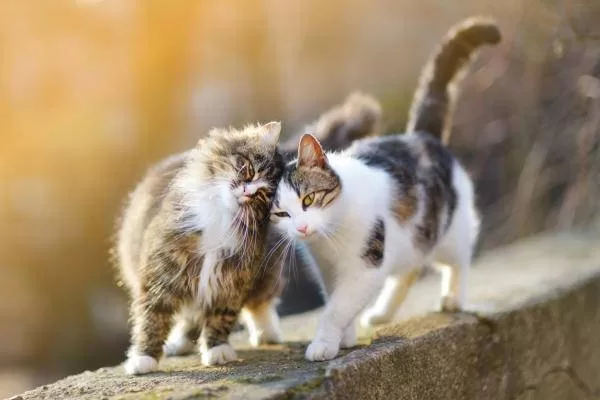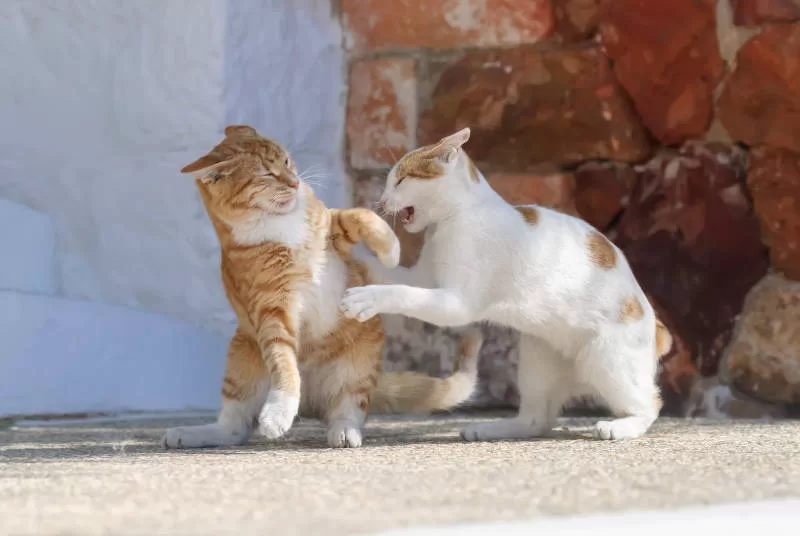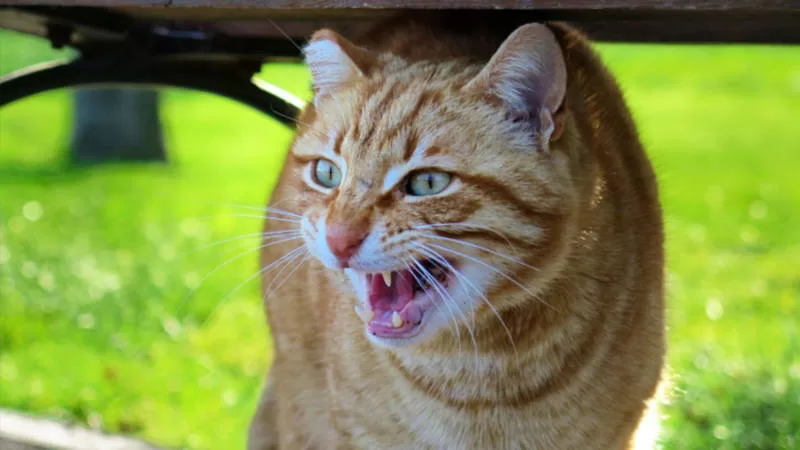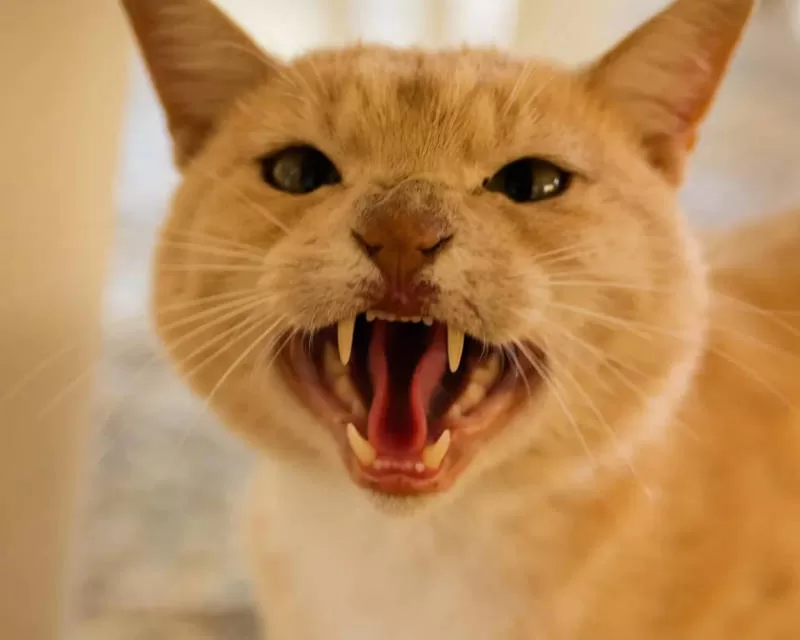Cats are known for their curious and fascinating nature. Their unique behaviors can be charming, but they can also be challenging, especially when it comes to skittish cats. These cats are more reserved and may have difficulty socializing with humans and other animals. However, with the right strategies, it is possible to create strong bonds with these cats and help them feel more comfortable in their environment.

Understanding the Nature of Skittish Cats
Cats are known for their independent and often skittish nature. While some cats are naturally more sociable and open to interactions, others may be more reserved and cautious. Understanding the nature of skittish cats is essential to establishing a healthy and positive relationship with them.
Skittish cats often have an innate tendency to be wary of strangers and new situations. This can be attributed to their instinctive nature to protect themselves against possible threats. These cats tend to be more observant and cautious of their environment, carefully assessing any situation before they feel comfortable approaching it.
Additionally, some skittish cats may have had traumatic experiences in the past, which may have led to the development of more withdrawn behaviors. These experiences may include abuse, neglect, or lack of adequate socialization during the crucial socialization phase of their lives.
It is important to keep in mind that each cat is unique and may have a combination of factors that contribute to their ariscia. Some cats can become skittish due to a combination of their genetics, past experiences, and current environment.
To establish a positive relationship with a skittish cat, it is essential to be respectful and patient. Forcing the interaction or trying to rush the process can lead to increased anxiety and fear in the cat, making it even more difficult to build trust.
A gradual, gentle approach is the key to gaining a skittish cat’s trust. This involves allowing the cat to set the limits and pace of the interaction. Give the cat time to get used to your presence and offer positive rewards, such as treats or toys, to reinforce positive behaviors and encourage positive association with your presence.
Maintaining a consistent routine can also be beneficial for skittish cats. They tend to feel more secure and comfortable in predictable and familiar environments. Be sure to provide a safe, quiet space for your skittish cat to retreat to when she feels overwhelmed or uncomfortable.
With patience, love and respect, it is possible to establish a trusting relationship with a skittish cat. Remember that each cat is unique and progress may take time. However, with persistence and dedication, you can help your skittish cat feel safer and more comfortable in your presence.

Identifying curious behaviors in skittish cats
Skittish cats can exhibit a range of curious behaviors that may be different from more sociable cats. Identifying these behaviors is essential to understanding and dealing with skittish cats appropriately. Here are some curious behaviors common in skittish cats:
- Hiding: Skittish cats tend to hide when they feel threatened or insecure. They can hide under furniture, inside closets or even in inaccessible places. It’s important to respect your cat’s space and not force him to come out of hiding when he doesn’t feel comfortable.
- Avoid physical contact: Skittish cats generally avoid physical contact with humans. They may move away when someone tries to pet them or run away when someone approaches. This doesn’t mean that the cat doesn’t like you, but rather that he needs time and patience to trust.
- Growling or hissing: When a skittish cat feels threatened, it may growl or hiss as a form of defense. This usually happens when someone approaches too quickly or tries to force the interaction. It is important to respect the cat’s space and not provoke it.
- Staring: Skittish cats often stare at something for a long period of time. This may indicate that they are in a state of alert or observing something of interest. It is important not to disturb the cat during these moments, as this can cause discomfort.
- Aggressive behavior: Some skittish cats may exhibit aggressive behavior when they feel threatened. This may include scratching, biting or attacking. It is essential to be careful when dealing with an aggressive, skittish cat and seek professional help if necessary.
When identifying these curious behaviors in skittish cats, it’s important to remember that each cat is unique and may react differently. Patience, understanding and respect are essential to establishing a positive relationship with a skittish cat and helping him feel safer and more confident over time.

Reasons behind skittish cats’ curious behaviors
Skittish cats are known for their curious and often mysterious behaviors. They can be suspicious, hide in inaccessible places and be distant with humans. There are several reasons that can explain these behaviors:
- Survival instinct: Skittish cats may have been raised in environments where they needed to be cautious to protect themselves from predators or other dangers. Therefore, they may be constantly on alert and ready to flee or hide.
- Past trauma: Some skittish cats may have suffered traumatic experiences before being rescued or adopted. This can lead to skittish behavior as a form of self-protection.
- Lack of socialization: Cats that were not adequately socialized as kittens may be more likely to develop skittish behaviors. Early socialization is essential for teaching cats to trust humans and their environment.
- Individual personality: Just like humans, each cat has a unique personality. Some cats may simply be more shy and reserved by nature, which can lead to skittish behavior.
Understanding the reasons behind skittish cats’ curious behaviors is the first step to helping improve your relationship with them. By recognizing that these behaviors are the result of individual factors and past experiences, we can adopt more empathetic and caring approaches when interacting with these cats.

5. Strategies for socializing skittish cats
Socializing skittish cats can be a challenge, but with the right strategies and a little patience, it is possible to create a positive relationship with these felines. Here are some effective strategies for socializing skittish cats:
1. Build trust gradually
It’s important to remember that socializing skittish cats requires a gradual process. Start by gaining the cat’s trust through positive interactions. Offer treats and toys, but allow the cat to approach you at its own pace. Avoid forcing physical contact at first, as this can scare the cat and make the socialization process difficult.
2. Create a safe environment
To help your cat feel more comfortable, create a safe, welcoming environment. Provide hiding places such as boxes, dens or scratching posts where the cat can take refuge if it feels scared. Make sure the environment is calm and peaceful, avoiding noises and sudden movements that could scare the cat.
3. Use positive reinforcement techniques
Use positive reinforcement techniques to encourage desired behaviors. Reward your cat with treats, petting or praise whenever he approaches you or interacts with you in a calm and friendly manner. Avoid punishments or reprimands, as this can increase the cat’s anxiety and hinder socialization.
4. Have play sessions
Play is a great way to socialize skittish cats. Use interactive toys, such as wands with feathers or balls, to stimulate your cat and encourage interaction. Playing also helps release energy and reduce stress, making your cat more receptive to socialization.
5. Gradually introduce other animals and people
If you have other pets at home or want to introduce your cat to visitors, do so gradually. Start with brief supervised encounters and observe the cat’s reaction. If he feels uncomfortable, back off and try again at another time. Little by little, the cat will get used to the presence of other animals and people.
Remember that each cat is unique and the socialization process can take time. Be patient and respect the cat’s rhythm. With love, care and persistence, it is possible to socialize skittish cats and build a rewarding relationship with them.

Training Techniques for Dealing with Curious Behaviors
When it comes to dealing with curious behaviors in skittish cats, the right training approach can be extremely helpful. Here are some effective techniques to help socialize your skittish cat:
- Be patient: It is important to understand that socializing skittish cats can take time and require patience. Your cat may need time to get used to your presence before it feels comfortable enough to interact.
- Use positive reinforcement: Using rewards and praise when your cat shows friendlier behaviors can help reinforce these actions. Offer treats or toys when your cat approaches you or allows you to be touched.
- Establish a routine: Skittish cats often feel safer when they have a predictable routine. Try to establish regular times for feeding, playing and quiet time so your cat can feel more comfortable and safe in your presence.
- Use desensitization techniques: If your cat is afraid of certain stimuli, such as loud noises or unfamiliar people, you can try gradually exposing him to these situations. Start with short, positive exposures, rewarding your cat for remaining calm. Gradually increase the duration and intensity of exposures.
- Provide safe hiding places: Skittish cats often feel safer when they have a place to hide. Be sure to provide your cat with safe spaces, such as boxes or beds with blankets, where he can retreat when he feels threatened.
- Avoid punishment: It is important to avoid physical or verbal punishment with skittish cats, as this can increase their anxiety and make the socialization process even more difficult. Instead, focus on reinforcing desirable behaviors with positive rewards.
- Seek help from a professional: If you are having difficulty socializing your skittish cat, it may be helpful to seek guidance from a cat behaviorist. They can provide personalized guidance and additional techniques to help overcome your cat’s specific challenges.
Remember that each cat is unique and may respond differently to training techniques. Therefore, it is important to adapt approaches according to the individual needs of your skittish cat. With time, patience and persistence, it is possible to socialize and develop a loving relationship with your skittish cat.

Special care for skittish cats
Skittish cats can present additional challenges when it comes to care and maintenance. Here are some tips to help you properly care for a skittish cat:
1. Respect the cat’s space: Skittish cats generally prefer to keep a certain distance from people. It’s important to respect their space and avoid forcing interaction. Let the cat approach you when ready.
2. Provide a safe environment: Create a safe and calm environment for the skittish cat. This may include providing hiding places, such as boxes or high shelves, where the cat can feel safe and relaxed.
3. Establish a routine: Skittish cats tend to feel more comfortable when they have a consistent routine. Feed them at regular times, provide fresh water daily and keep the litter box clean.
4. Use positive reinforcement: When interacting with a skittish cat, use positive reinforcement to encourage him to feel comfortable. This may include rewarding him with treats or praise when he approaches you or allowing you to pet him.
5. Avoid punishment: Punishment can cause fear and anxiety in skittish cats, which can worsen their behavior. Avoid yelling, hitting or scaring the cat as a form of correction.
6. Patience and time: Socializing a skittish cat requires patience and time. Don’t expect immediate results. Respect your cat’s rhythm and be willing to take the time to build trust and bond with your cat.
7. Consult a professional: If you are having difficulty socializing or caring for a skittish cat, consider seeking help from a professional, such as a veterinarian or feline behaviorist. They can offer advice and guidance tailored to your specific case.
Dealing with a skittish cat can be challenging, but with the right strategies and a lot of patience, it is possible to build a harmonious and satisfying relationship with your feline. Remember that each cat is unique and may require different approaches, so be open to adjusting your approach to meet your cat’s individual needs.

Benefits of Socializing Skittish Cats
Socializing skittish cats can be a challenge, but the benefits of this process are worth it. By helping a skittish cat get used to the presence of humans and other animals, you are providing a happier, healthier life for your feline. Here are some of the top benefits of socializing skittish cats:
1. Better emotional health
Skittish cats often live in constant alert and stress, which can negatively affect their emotional health. By socializing your cat, you are helping it develop confidence and security in its environment. This can reduce stress and anxiety, improving your overall emotional health.
2. Reduction of unwanted behaviors
Skittish cats may exhibit unwanted behaviors, such as urinating outside the litter box, scratching furniture, or aggression. Proper socialization can help eliminate or reduce these behaviors, as the cat will feel safer and more confident in its environment.
3. More harmonious interaction with humans
When a skittish cat is socialized, it learns to trust humans and understand interactions with them. This can result in a more harmonious interaction between the cat and its family, allowing everyone to enjoy a closer, more loving relationship.
4. Adaptation to new situations and environments
Skittish cats often have difficulty dealing with change and new situations. By socializing your cat, you are helping it to better adapt to different environments and circumstances. This can make traveling, vet visits and other situations that would normally be stressful for the feline easier.
5. More adoption opportunities
Skittish cats are less likely to be adopted compared to sociable cats. By socializing a skittish cat, you are increasing its chances of finding a loving home, as sociable cats are more sought after by potential adopters.
In short, socializing skittish cats brings a series of benefits, from better emotional health and a reduction in unwanted behaviors, to a more harmonious interaction with humans and greater adaptability to new situations. Additionally, by socializing a skittish cat, you are increasing your chances of finding a home for this feline. Remember to be patient and use appropriate training techniques to help your cat become more sociable and confident.
External Links:

